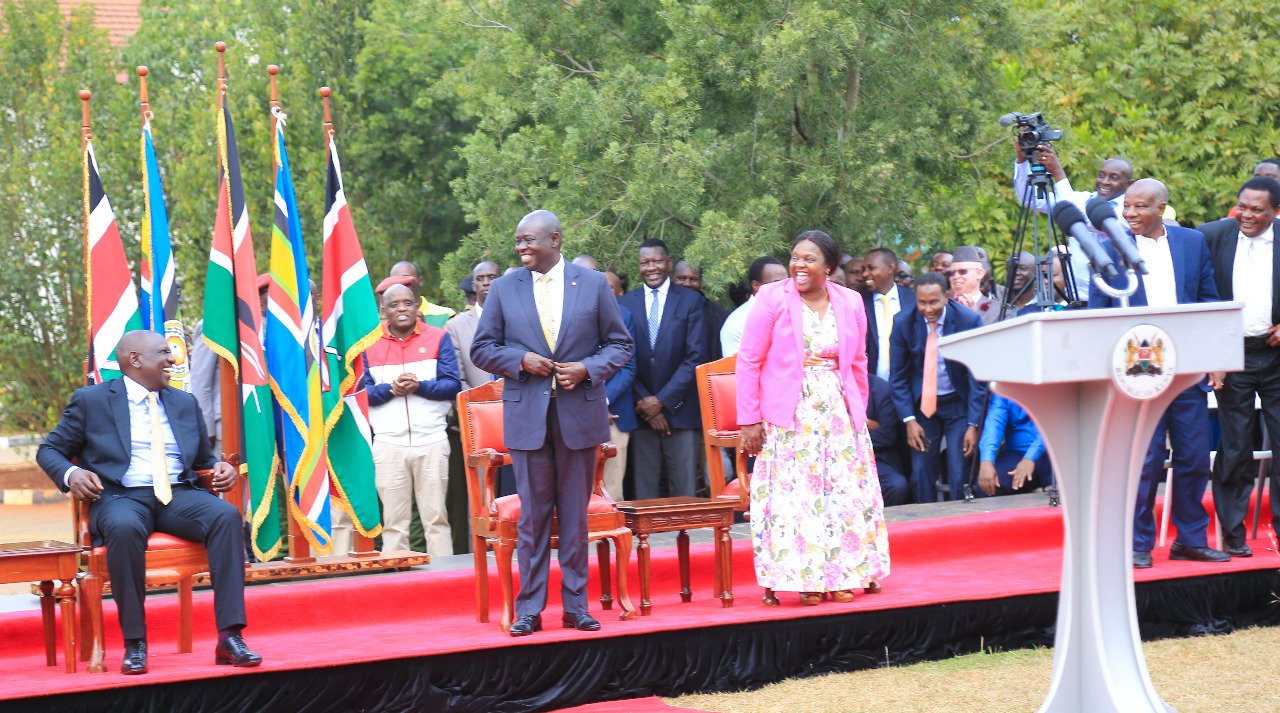Seven judges delivered the unanimous verdict on Monday in a consolidated petition seeking to overturn Ruto’s victory on claims that the electoral commission manipulated the votes to favour him.
In its decision, the Supreme Court said it was satisfied that the President-Elect attained the 50 per cent plus one threshold, and upheld his election.
The judges found that the petitioners did not provide a water tight case in regards to the 50 per cent plus one vote requirement.
Chief Justice Martha Koome who delivered the verdict also said that the Independent Electoral and Boundaries Commission (IEBC) and the Chairperson Wafula Chebukati were right in rounding off percentages.
“The president-elect attained 50%+1 of the total votes cast as evidenced by Forms,” she stated.
The court ruled that Ruto was validly elected as the 5th President of the Republic of Kenya.
“Petitions one to seven are hereby dismissed. We declare that the election of William Ruto as President is valid, each party to bear its own costs,” Koome stated.
Ruto was declared the President-Elect on August 15, 2022, after garnering 7,176,141 votes, representing 50.49 per cent of the votes cast, against Odinga’s 6,942,930 votes, translating to 48.85 per cent of the votes cast.
On the first issue of whether the technology deployed by IEBC for the conduct of the August 9 poll met the standards of integrity, verifiability, security, and transparency to guarantee accurate and verifiable results, Koome said the court was satisfied.
She added that the bench was not convinced by the allegations made by petitioners that the technology did not meet the required standards.
Koome also stated that IEBC sufficiently explained how the election technology (KIEMS) kits work and that in areas where technology failed they made sure that Kenyans voted using the manual register.
“The scrutiny orders by the court did not show any security breaches,” Koome stated.
On the second issue on whether there was interference in the uploading and transmission of polling station results from the polling stations to the IEBC public portal, Koome said that no credible evidence was presented.
“No credible evidence that forms 34A was being downloaded and uploaded was adduced, and that no evidence of middle man or evidence that IEBC chairman was part of the alleged conspiracy,” Koome stated.
On whether there was a difference between Forms 34A uploaded on the IEBC public portal, those received at the national tallying center, and forms 34As issued to the agents at the polling stations, Koome said scrutiny conducted on the forms from 41 polling stations didn’t return any irregularities.
They also dismissed John Githongo’s allegations that some 56 hackers in Karen changed presidential results.
By Fred Odanga Azelwa.
